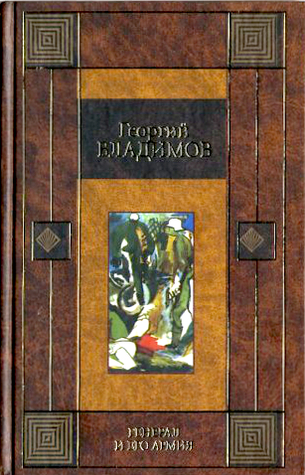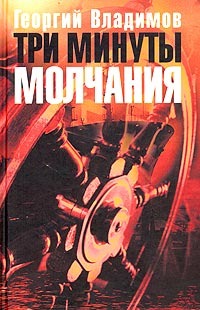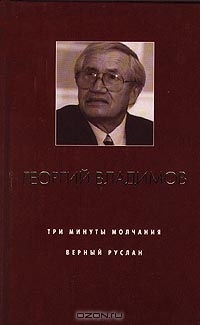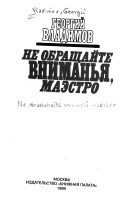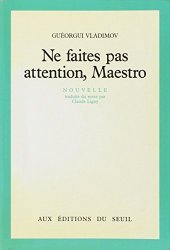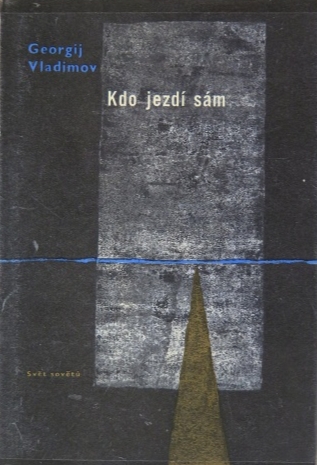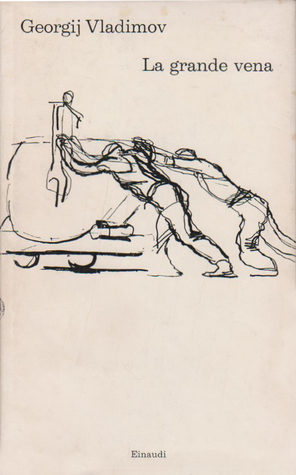
Georgi Vladimov, who has died aged 72, was one of the promising young writers seen as representing new hope for Russian literature in the de-Stalinisation thaw of the 1950s and early 1960s. By the end of the 1970s, however, they had become disillusioned, and many, including Vladimov, had emigrated from the Soviet Union.
Vladimov's particular distinction was as a dissident of immense moral courage, and as the author of Faithful Ruslan, one of the defining literary texts of the post-Stalin period. His life was one of constant vicissitudes, but his authority and fortitude remained firm to the end.
Born Georgi Volosevich in Kharkov, Ukraine, of a Jewish mother and a father of mixed Polish and Belarusian origin, Vladimov studied at the Suvorov Military Academy and Leningrad University, graduating in law in 1953. His mother had already fallen foul of the official anti-semitic campaign, and Vladimov himself felt under threat.
His first novel, The Great Ore (1961), although on a typically Soviet industrial theme, attracted widespread praise for its unconventional treatment of the individualistic main character. The next novel, Three Minutes Of Silence (1969), also had a production theme, but the hero, a sailor in the White Sea fishing fleet, was a feckless youth, quite unlike a traditional hero. The book was heavily censored and Vladimov was accused of "perverting Soviet reality".
ollowing this debacle, Vladimov became a literary outcast and, after meeting Andrei Sakharov, began to play a major part in the dissident movement, boldly revoking his membership of the Writers' Union and becoming head of the Moscow branch of Amnesty International.
His most influential work, Faithful Ruslan, was written over a period of many years, and, in the 1970s, circulated widely in samizdat, where it was attributed to many different writers, including Solzhenitsyn. This brilliant allegory concerns an Alsatian guard dog after Nikita Khrushchev's closure of the prison camps; the dog's sudden release leads to disorientation and tragedy, and readers had no difficulty in seeing a parallel with the USSR's moral confusion after the Stalinist nightmare. Following its publication in Germany in 1982, the novella was translated into many European languages.
Vladimov's interest in the war and the army had begun heroically at the age of 12, when he ran away from home to defend the front against the Germans (too young to fight, he was promptly returned to his mother). The army entered his fiction in 1981 with a two-act comedy, The Sixth Soldier, which had to be published abroad. The play anticipated his later writing about the cruelty and absurdity of the Red army towards its own soldiers and others.
By this time Vladimov's life was being made intolerable by the KGB; some of his experience of harassment and its effect on family life is recorded in a satirical story, Pay No Attention, Maestro, published in 1983 in Germany, which highlighted many absurd aspects of Soviet life, including the rivalry between the KGB and the militia. Shortly before this, he and his second wife, the journalist Natalia Kuznetsova, decided to emigrate to Germany; within two months, they were stripped of their Soviet citizenship.
In 1984, Vladimov became editor of the Russian journal Facets, published in Frankfurt, though two years later he was dismissed for failing to toe the line of the journal's owners.
Financial and personal difficulties ensued, but in 1994 he produced his last major work, a novel about the retaking of Kiev during the second world war, The General And His Army. This bold, fictionalised account is notable for its portrait of the feared counter-intelligence organisation Smersh, and the true story of General Vlasov, whose army believed that taking the German side would help restore democracy in Russia. It won a prize for best Russian novel of 1994, and the Russian Booker the following year.
Vladimov's Russian citizenship was restored in

